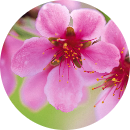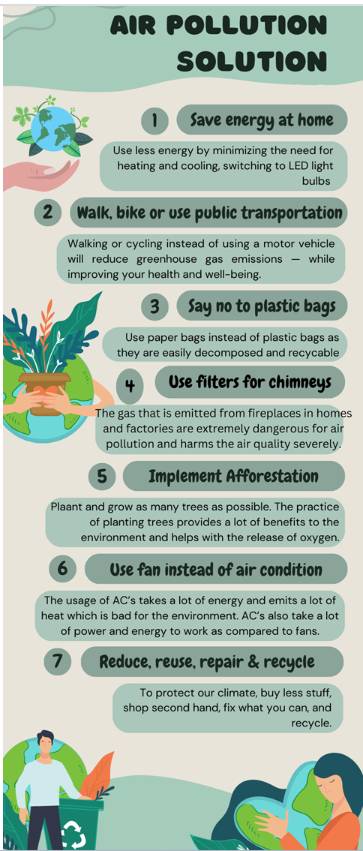Make a presentation about water pollution based on the diagram.

Những câu hỏi liên quan
6. Make a presentation about water pollution based on the diagram. ( ko chép mạng )
Hello everybody, now I am going to tell you about water pollution, a serious problem. First, the definition of it is the contamination of bodies of water such as lakes, rivers, oceans and groundwater. There are two reasons why they are polluted: point source pollutants and non- point source pollutamt. Point source pollutants are industrial waste, sewage, pesticides, herbicides. Non-point pollutants are pollutants from storm water and atmosphere. There are a lot of effects that water pollution may cause. Human and animals may die if they drink contaminated water. Plants will be killed by pollutants as well. So what we can do to solve the problem? Goverment should give heavy fines to companies that are found doing this. We also educate companies about the environment and give tax breaks to companies that find “clean” ways to dispose of their waste.
Đúng 0
Bình luận (3)
make a presentation about water pollution based.
Hello everybody, now I am going to tell you about water pollution, a serious problem. First, the definition of it is the contamination of bodies of water such as lakes, rivers, oceans and groundwater. There are two reasons why they are polluted: point source pollutants and non- point source pollutamt. Point source pollutants are industrial waste, sewage, pesticides, herbicides. Non-point pollutants are pollutants from storm water and atmosphere. There are a lot of effects that water pollution may cause. Human and animals may die if they drink contaminated water. Plants will be killed by pollutants as well. So what we can do to solve the problem? Goverment should give heavy fines to companies that are found doing this. We also educate companies about the environment and give tax breaks to companies that find “clean” ways to dispose of their waste.
II. Rearrange the sentences using the following words:1. about/ presentation/ water/ about/ air pollution?/ How/ and/ giving/ a/………………………………………………………………………………………2. is/ water/ for/ There/ on Earth./ plentiful/ life/………………………………………………………………………………………3. I/ ride/ bike./ primary school,/ started/ had learnt/ how/ By/ I/ the time/ a/ to/………………………………………………………………………………………4. stay/ City/ three/ We’ve/ for/ in/ decided/ Ho Chi Minh/ days./ to/………………………………………………………………………………………5. Mars/ in/ Scientists/ plannin...
Đọc tiếp
II. Rearrange the sentences using the following words:
1. about/ presentation/ water/ about/ air pollution?/ How/ and/ giving/ a/
………………………………………………………………………………………
2. is/ water/ for/ There/ on Earth./ plentiful/ life/
………………………………………………………………………………………
3. I/ ride/ bike./ primary school,/ started/ had learnt/ how/ By/ I/ the time/ a/ to/
………………………………………………………………………………………
4. stay/ City/ three/ We’ve/ for/ in/ decided/ Ho Chi Minh/ days./ to/
………………………………………………………………………………………
5. Mars/ in/ Scientists/ planning/ to explore/ future./ are/ people/ to send/ the near/
………………………………………………………………………………………
II. Rearrange the sentences using the following words:1. about/ presentation/ water/ about/ air pollution?/ How/ and/ giving/ a/………………………………………………………………………………………2. is/ water/ for/ There/ on Earth./ plentiful/ life/………………………………………………………………………………………3. I/ ride/ bike./ primary school,/ started/ had learnt/ how/ By/ I/ the time/ a/ to/………………………………………………………………………………………4. stay/ City/ three/ We’ve/ for/ in/ decided/ Ho Chi Minh/ days./ to/………………………………………………………………………………………5. Mars/ in/ Scientists/ plannin...
Đọc tiếp
II. Rearrange the sentences using the following words:
1. about/ presentation/ water/ about/ air pollution?/ How/ and/ giving/ a/
………………………………………………………………………………………
2. is/ water/ for/ There/ on Earth./ plentiful/ life/
………………………………………………………………………………………
3. I/ ride/ bike./ primary school,/ started/ had learnt/ how/ By/ I/ the time/ a/ to/
………………………………………………………………………………………
4. stay/ City/ three/ We’ve/ for/ in/ decided/ Ho Chi Minh/ days./ to/
………………………………………………………………………………………
5. Mars/ in/ Scientists/ planning/ to explore/ future./ are/ people/ to send/ the near/
………………………………………………………………………………………
II. Rearrange the sentences using the following words:
1. about/ presentation/ water/ about/ air pollution?/ How/ and/ giving/ a/
…………………………… How about giving a presentation about water and air pollution?…………………………………………………………
2. is/ water/ for/ There/ on Earth./ plentiful/ life/
………………………………… There is plentiful water for life on Earth.……………………………………………………
3. I/ ride/ bike./ primary school,/ started/ had learnt/ how/ By/ I/ the time/ a/ to/
………………………… By the time I started primary school, I had learnt how to ride a bike……………………………………………………………
4. stay/ City/ three/ We’ve/ for/ in/ decided/ Ho Chi Minh/ days./ to/
……………………………… We've decided to stay in Ho Chi Minh City for three days………………………………………………………
5. Mars/ in/ Scientists/ planning/ to explore/ future./ are/ people/ to send/ the near/
…………………………………… Scientists are planning to send people to explore Mars in the near future…………………………………………………
Đúng 1
Bình luận (0)
1. How about giving a presentation about water and air pollution?
2. There is plentiful water for life on Earth.
3. By the time I started primary school, I had learnt how to ride a bike
4. We've decided to stay in Ho Chi Minh City for three days
5. Scientists are planning to send people to explore Mars in the near future
Đúng 1
Bình luận (0)
1. How about giving a presentation about water and air pollution?
2. There is plentiful water for life on Earth.
3. By the time I started primary school, I had learnt how to ride a bike
4. We've decided to stay in Ho Chi Minh City for three days
5. Scientists are planning to send people to explore má in the near futur
Đúng 1
Bình luận (0)
Xem thêm câu trả lời
Make sentences using the words and phrases:1. How about/ give/ presentation/ water/ air/ pollution/? /………………………………………………………………………………………2. His summer camp/ close/ July 16th/ last year. /………………………………………………………………………………………3. You/ finish/ your homework/ yet/? / ……………………………………………………………………………………….4. The foreigner/ said/ he/ not / know/ way/ My Dinh stadium. /………………………………………………………………………………………5. Mars/ be / called/ the Red Planet/ because/ its reddish surface. /……………………………………...
Đọc tiếp
Make sentences using the words and phrases:
1. How about/ give/ presentation/ water/ air/ pollution/? /
………………………………………………………………………………………
2. His summer camp/ close/ July 16th/ last year. /
………………………………………………………………………………………
3. You/ finish/ your homework/ yet/? /
……………………………………………………………………………………….
4. The foreigner/ said/ he/ not / know/ way/ My Dinh stadium. /
………………………………………………………………………………………
5. Mars/ be / called/ the Red Planet/ because/ its reddish surface. /
………………………………………………………………………………………
Make sentences using the words and phrases:
1. How about/ give/ presentation/ water/ air/ pollution/? /
How about giving a presentation on water and air pollution?
2. His summer camp/ close/ July 16th/ last year. /
His summer camp was closed on July 16th last year.
3. You/ finish/ your homework/ yet/? /
Have you finished your homework yet?
4. The foreigner/ said/ he/ not / know/ way/ My Dinh stadium. /
The foreigner said that he didn't know the way to My Dinh stadium.
5. Mars/ be / called/ the Red Planet/ because/ its reddish surface. /
Mars is called the Red Planet because of its reddish surface.
Chúc em học giỏi
Đúng 0
Bình luận (1)
II. Rearrange the sentences using the following words:
1. about/ presentation/ water/ about/ air pollution?/ What/ and/ giving/ a/
………………………………………………………………………………………
2. saw/ I/ yesterday./ very/ a/ film/ interesting/
………………………………………………………………………………………
3. I/ ride/ bicycle./ primary school,/ started/ had learnt/ how/ By/ I/ the time/ a/ to/
………………………………………………………………………………………
4. stay/ City/ ten/ We’ve/ for/ in/ decided/ Ha Noi/ days./ to/
………………………………………………………………………………………
5. the moon/ in/ Scientists/...
Đọc tiếp
II. Rearrange the sentences using the following words: 1. about/ presentation/ water/ about/ air pollution?/ What/ and/ giving/ a/ ……………………………………………………………………………………… 2. saw/ I/ yesterday./ very/ a/ film/ interesting/ ……………………………………………………………………………………… 3. I/ ride/ bicycle./ primary school,/ started/ had learnt/ how/ By/ I/ the time/ a/ to/ ……………………………………………………………………………………… 4. stay/ City/ ten/ We’ve/ for/ in/ decided/ Ha Noi/ days./ to/ ……………………………………………………………………………………… 5. the moon/ in/ Scientists/ planning/ to explore/ future./ are/ people/ to send/ the near/ ………………………………………………………………………………………
II. Rearrange the sentences using the following words: 1. about/ presentation/ water/ about/ air pollution?/ What/ and/ giving/ a/ ………WHAT ABOUT GIVING A PRESENTATION ABOUT WATER AND AIR POLLUTION?……………………………………………………………………………… 2. saw/ I/ yesterday./ very/ a/ film/ interesting/ …………………I SAW A VERY INTERESTING FILM YESTERDAY …………………………………………………………………… 3. I/ ride/ bicycle./ primary school,/ started/ had learnt/ how/ By/ I/ the time/ a/ to/ ……………BY THE TIME I STARTED PRIMARY SCHOOL,I HAD LEARNT HOW TO RIDE A BICYCLE………………………………………………………………………… 4. stay/ City/ ten/ We’ve/ for/ in/ decided/ Ha Noi/ days./ to/ …………………WE'VE DECIDED TO STAY IN HN CITY FOR TEN DAYS…………………………………………………………………… 5. the moon/ in/ Scientists/ planning/ to explore/ future./ are/ people/ to send/ the near/ …………SCIENTISTS ARE PLANNING TO SEND PEOPLE TO EXPLORETHE MOON IN THE NEAR FUTURE ……………………………
Đúng 1
Bình luận (0)
II. Rearrange the sentences using the following words:1. about/ presentation/ water/ about/ air pollution?/ What/ and/ giving/ a/………………………………………………………………………………………2. saw/ I/ yesterday./ very/ a/ film/ interesting/………………………………………………………………………………………3. I/ ride/ bicycle./ primary school,/ started/ had learnt/ how/ By/ I/ the time/ a/ to/………………………………………………………………………………………4. stay/ City/ ten/ We’ve/ for/ in/ decided/ Ha Noi/ days./ to/………………………………………………………………………………………5. the moon/ in/ Scientists/ planning...
Đọc tiếp
II. Rearrange the sentences using the following words:
1. about/ presentation/ water/ about/ air pollution?/ What/ and/ giving/ a/
………………………………………………………………………………………
2. saw/ I/ yesterday./ very/ a/ film/ interesting/
………………………………………………………………………………………
3. I/ ride/ bicycle./ primary school,/ started/ had learnt/ how/ By/ I/ the time/ a/ to/
………………………………………………………………………………………
4. stay/ City/ ten/ We’ve/ for/ in/ decided/ Ha Noi/ days./ to/
………………………………………………………………………………………
5. the moon/ in/ Scientists/ planning/ to explore/ future./ are/ people/ to send/ the near/
………………………………………………………………………………………
III. Make sentences using the words and phrases given:
1. I/ live/ on/ outskirts/ a city/ Thailand/now./
………………………………………………………………………………………
2. English/ speak/ all/ world./
………………………………………………………………………………………
3. Kangaroo/ be/ symbol/ Australia./
………………………………………………………………………………………
4. Nhi/ enjoyed/ chat/ the phone/ her friends./
………………………………………………………………………………………
5. Nam/ will/ not/ able/ go/ cinema/ at/ 3.30 p.m./ this Monday/ because/ be/ having/ class./
………………………………………………………………………………………
1. I live on the outskirts of a city in Thailand.
2. English is spoken all over the world.
3.The kangaroo is the symbol of Australia.
4. Nhi loves talking on the phone with friends.
5. Nam won't be able to go to the movies at 3:30 pm. This Monday because there are classes.
Đúng 3
Bình luận (0)
2. saw/ I/ yesterday./ very/ a/ film/ interesting/
=> A very interesting film. I saw yesterday.
Đúng 0
Bình luận (0)
Work in pairs. Discuss the causes and effects of one type of pollution in your area. Make notes in the diagram.
Xem chi tiết
Work in groups.
1. Choose a serious pollution problem in your area (noise pollution, air pollution, water pollution, ...). Suggest solutions to the problem.
2. Make a poster. Write your solutions on your poster. Use picture or illustrate / decorate your poster.
3. Present your poster to the class.

Exercise 1:
Air pollution is measured by a number called the Air Quality Index (AQI), which ranges from 0-500, with anything over 150 considered “unhealthy.” The World Health Organization considers any reading above 100 to be hazardous and recommends that people avoid prolonged exposure. While Vietnamese cities such as Hanoi and Ho Chi Minh City have AHI readings around 100 or higher, many provinces have far worse levels of pollution. In some areas of the south, where there are large rubber plantations and coal mines, AQI numbers can surpass 500.
(Ô nhiễm không khí được đo bởi một con số gọi là Chỉ số Chất lượng Không khí (AQI), có khoảng từ 0 đến 500, với bất cứ cái gì ở trên mức 150 sẽ được coi là “độc hại”. Tổ chức Y tế thế giới WHO cho rằng với mỗi lần đọc mà chỉ số trên 100 thì nghĩa là ở mức nguy hiểm và khuyến cáo mọi người tránh tiếp xúc lâu ở bên ngoài. Trong khi những thành phố ở Việt Nam như Hà Nội và thành phố Hồ Chí Minh đọc được chỉ số AHI khoảng 100 hoặc hơn, nhiều tính khác có mức độ ô nhiễm tệ hơn rất nhiều. Ở một vài vùng ở miền Nam, những vùng trồng cao su và mỏ than thì chỉ số AQI có thể vượt qua 500.)
Some simple way to reduce air pollution
(Vài cách đơn giản để giảm thiểu ô nhiễm không khí)
1. Using public transports
(Sử dụng phương tiện công cộng)
2. Turn off the lights when not in use
(Tắt điện khi không sử dụng)
3. Recycle and reuse
(Tái sử dụng và tái chế)
4. Say no to plastic bags
(Nói không với túi nhựa)
5. Reduction of forest fires and smoking
(Giảm thiểu cháy rừng và hút thuốc)
6. Use of fans instead of air conditioner
(Sử dụng quạt thay vì điều hòa)
7. Use filters for chimneys
(Sử dụng tấm lọc cho ống khói)
8. Avoid usage of crackers
(Tránh sử dụng pháo ống)
9. Avoid using of products with chemicals
(Tránh sử dụng các sản phẩm chứa nhiều chất hóa học)
10. Implement afforestation
(Tiến hành trồng rừng)
Đúng 0
Bình luận (0)
Exercise 3:
As we can know, air pollution is measured by a number called the Air Quality Index (AQI), which ranges from 0-500, with anything over 150 considered “unhealthy.” The World Health Organization considers any reading above 100 to be hazardous and recommends that people avoid prolonged exposure. While Vietnamese cities such as Hanoi and Ho Chi Minh City have AHI readings around 100 or higher, many provinces have far worse levels of pollution. In some areas of the south, where there are large rubber plantations and coal mines, AQI numbers can surpass 500. So, what can we do to improve our air quality? Here are some simple way to reduce air pollution.
The first one is saving energy at home. You can save energy by reducing the need for heating and cooling in your house and replace normal light bulb to energy saving fluorescent lights to help the environment.
The second one is using public transport or walking or riding bike whenever you can. Doing that will not only reduce the carbon emission but also help saving money. Also, walking or riding bike is good for your health.
Next is saying no to plastic bags. The use of plastic products could be very harmful to the environment as they take a very long time to decompose, due to their material made up of oil. The use of paper bags instead is a better alternative as they decompose easily and are recyclable.
Implementing afforestation is also a way to lessen air pollution. There are a lot of volunteer group plating forests every year but we can practice it at our home by plant a tree or make a garden in the yard. Trees helps release oxygen and make the atmosphere cooler.
The next one is use fan instead of air conditioner. The usage of AC’s takes a lot of energy and emits a lot of heat which is bad for the environment. AC’s also take a lot of power and energy to work as compared to fans.
Finally, we reduce, reuse, repair and recycle. We should buy less stuff and buy second hand, fix what you can and recycle. This helps save a lot of money and protect the environment.
Tạm dịch:
Như chúng ta đã biết, ô nhiễm không khí được đo bởi một con số gọi là Chỉ số Chất lượng Không khí (AQI), có khoảng từ 0 đến 500, với bất cứ cái gì ở trên mức 150 sẽ được coi là “độc hại”. Tổ chức Y tế thế giới WHO cho rằng với mỗi lần đọc mà chỉ số trên 100 thì nghĩa là ở mức nguy hiểm và khuyến cáo mọi người tránh tiếp xúc lâu ở bên ngoài.
Trong khi những thành phố ở Việt Nam như Hà Nội và thành phố Hồ Chí Minh đọc được chỉ số AHI khoảng 100 hoặc hơn, nhiều tính khác có mức độ ô nhiễm tệ hơn rất nhiều. Ở một vài vùng ở miền Nam, những vùng trồng cao su và mỏ than thì chỉ số AQI có thể vượt qua 500. Đây là vài cách đơn giản để giảm thiểu ô nhiễm không khí.
Đầu tiên là tiết kiệm điện ở nhà. Bạn có thể tiết kiệm năng lượng bằng cách giảm nhu cầu sưởi ấm và làm mát trong nhà và thay bóng đèn thường thành đèn huỳnh quang tiết kiệm năng lượng để bảo vệ môi trường. Thứ hai là đi phương tiện công cộng hoặc đi bộ hay đạp xe bất cứ khi nào có thể. Thực hiện việc đó có thể làm giảm khí thải cacbon mà còn tiết kiệm tiền. Đi bộ và đạp xe cũng giúp cải thiện sức khỏe. Thứ ba là nói không với túi ni-lông. Việc sử dụng túi ni lông rất có hại cho môi trường vì chúng rất khó phân hủy, do nhựa được làm từ dầu mỏ. Sử dụng túi giấy là một biện pháp thay thế tốt vì dễ phân hủy và có thể tái chế. Trồng rừng cũng là một cách để giảm ô nhiễm không khí. Hằng năm có rất nhiều nhóm tình nguyên tham gia trồng rừng nhưng chúng ta có thể thực hiện ở nhà bằng cách trồng cây hoặc làm một khu vườn. Cây cối giúp tạo ra oxi và giúp bầu không khí trở nên mát mẻ hơn. Tiếp theo là sử dụng quạt thay vì dùng điều hòa. Sử dụng điều hòa tốn nhiều năng lượng hơn và tỏa ra nhiều nhiệt, điều này có hại cho môi trường. So với quạt thì điều hòa cần rất nhiều năng lượng để hoạt động. Cuối cùng là giảm thiểu, tái sử dụng, sửa chữa và tái chế. Chúng ta nên mua ít đồ hơn, mua đồ xách tay, sửa chữa những gì có thể và tái chế. Điều này giúp tiết kiệm tiền và bảo vệ môi trường.
Đúng 0
Bình luận (0)























